HE and Research Bill – the Bill was debated in the House of Lords on Monday and Wednesday with a lively debate on both days. Monday’s was marginally more exciting because the House voted on one amendment (248 to 221) and the government was defeated, but this is likely to turn out to have been more symbolic than substantive. Read the Wonkhe perspective here and some other coverage from the Times Higher here.
The amendment that was passed was the first amendment on the list and related to the function of universities and included the statement that “universities are autonomous institutions and must uphold the principles of academic freedom and freedom of speech” and another of other statements about the purpose of universities – in practice this will not be adopted as drafted as it is hard to see how it would work as part of legislation – but it set the tone of the debates and showed that – if pushed – the Lords can and will muster a majority to defeat the government – and may do so again.
So far, apart from the first amendment, only government amendments have been agreed, with the rest withdrawn or not moved – including amendments on part time and flexible study, the role of the Director for Fair Access, and the relationship between the OfS and UKRI – and the name of the OfS. The Government have said that they will reflect on the debate and the comments made, so there may be more Government amendments forthcoming. Many members of the House of Lords have reserved their position on the points made which will arise again on later amendments. The latest “marshalled list” of amendments is here with a supplementary list here.
- Blog from Jo Johnson on Conservative Home on 9th January 2016 on autonomy and the purpose of the bill
- Wonkhe article on academic freedom ahead of the Lords debates
- Andrea Coscelli (Acting Chief Executive) of the Competition and Markets Authority has blogged on why competition is good for universities and their perspective on the Bill
- Lord Stevenson, author of many of the proposed amendments for Labour, in the Times Higher on the problems in the Bill
- Lord Knight has also blogged for the Times Higher on the Bill – his interesting last comments is “Finally, the chatter in the voting lobbies was one that questioned the need for the bill. Many are trying to understand exactly what problem this legislation is trying to fix, or whether it is just an ideological move to advantage the private sector.”
- Jo Johnson has written in the Telegraph and blogged on the amendment that was passed: “We have seen this week how passionately expert members of the House of Lords feel about institutional autonomy and academic freedom – and, on this point, we wholly agree. ….The Government is listening carefully to powerful arguments made during Committee Stage and understands the passions that these important questions arouse. We must avoid, however, hasty attempts to incorporate into primary legislation unprecedented declaratory statements about the nature and purpose of universities. While it had the best of intentions, the new clause promoted on Monday would inadvertently hem them in and stifle innovation.”
He suggests that the sector is just being resistant to change: “As history tells us, every period of university expansion in this country has met with opposition. And the arguments against new entrants put forward today echo those aired more than a century ago when UCL – now a pillar of academic excellence – was dismissed as ‘a Cockney university’. Similar opposition befell the civic colleges, Manchester and Birmingham among them, when they elected to transform themselves into red brick universities before the Great War, and could be heard again during the ‘plate-glass’ expansion of the 1960s. The same arguments were also made in opposition to the 1992 reforms that allowed the Polytechnics to convert into a wave of new universities, enabling them to play their part in ensuring higher education was never again rationed for the benefit of the socially privileged.
We must be careful to distinguish between legitimate and shared concerns that the Bill should protect cherished institutional autonomy from self-serving arguments cloaked in the garb of principle. As the Bill re-enters Lords Committee stage today, bear this in mind: those who would dig their heels in now ignore a central truth about our higher education system – our universities did not get where they are by accepting the status quo.”
- There is a response from Andrew McGettigan here.
Meanwhile, the Cabinet Office has advertised for board members for UKRI.
Brexit, immigration and the impact on staff and students There is an interesting read from HEPI (with Kaplan) this morning, balanced by the stories about the Education Select committee hearing yesterday – (thanks to Wonkhe):
Nick Hillman has written about the HEPI report in the Guardian. Although the conclusion is that the impact may not be the disaster that has been predicted (or at least not for all institutions) it comes with a big warning about the cumulative impact of changes to international student visas, which are still to be announced. “Of course the number of EU citizens who come to UK universities will probably fall as a result of Brexit. In part, this is because they are likely to lose access to tuition fee loans and to face full international fees, which are much higher than the UK fees they have been paying. Any fall is regrettable and, sadly, the latest UCAS figures suggest it has already begun. But working out how big the drop-off will be is hard partly because it depends on the type, location and mix of students at each university. Our assessment of Brexit’s impact takes such factors into account and finds the effect on student numbers and university incomes could be less dramatic than expected.
There are almost three times as many foreign students in the UK from outside the EU as from within it. This is because, until recently, EU undergraduate students came within the student number controls imposed on universities. So there was limited incentive to recruit them. Our analysis shows that, overall, their numbers could fall by more than half – that is by over 31,000 new students each year. But that is still only about 3% of all first-year undergraduate and postgraduate enrolments. Moreover, because of the higher fees, our modelling suggests that, despite receiving 31,000 fewer new EU students, universities will only lose £40m a year in the first year. That is just 0.1% of the total income of publicly-funded higher education institutions across the UK. Some institutions, such as Oxford and Cambridge, will actually see their fee income rise even as their EU students fall. This is because their full international fees are so high.”
In a separate story about staff immigration (Sky News but also widely reported – see Reuters) a Home Office Minster suggested that the £1000 per year per employee levy that applies to overseas workers might apply to EU workers post-Brexit and the PM has said this is not under consideration. Business reacted strongly to this (International Business Times). The levy will apply to employers of skilled international staff from April.
The House of Lords discussed the EU worker’s right to remain yesterday but with no new news – the rather strange dance continues on who will concede first that they do not intend to throw out each other’s citizens post-Brexit: “My Lords, the Government have been absolutely clear that we will seek to reach an agreement on this issue at an early stage of negotiations with the EU. I totally dispute the notion of a trade-off, because the EU’s refusal to guarantee the status of UK nationals elsewhere in the EU prior to negotiations shows that the Government have been absolutely right not to give away the guarantee of status for EU citizens in the UK. As the Prime Minister has said, that would have left UK citizens high and dry.”
The amendments to the HE Bill on international students were not accepted in the House of Lords yesterday.
Student enrolments data – The HESA UK HE 2015/16 enrolments and qualifications statistical first release (published 12 Jan) highlighted that 2015/16 UG enrolments were at their highest since the 2011/12 peak. In contrast, there was a notable decline in foundation degree enrolments (15%) and part time provision (overall 5%) within the sector. Most interesting are the changes in volume and geography of EU domiciled students between 2011/12 and 2015/16. Overall there is a 4% decline with regional variability between England, Scotland, Wales and Northern Ireland. There was a 1% decrease in international students from 2011/12 to 2015/16, contrasting the disproportionate growth from China (+12,500 students). Furthermore, 3% (207,522) fewer study visas were granted.
Changes to HE fee policies abroad – while international student numbers in the UK are dropping, there are changes afoot in competitor countries according to the BBC:
- Germany and the Philippines are scrapping tuition fees in state universities
- Finland intends to charge overseas and non-EU students from this autumn
- Scotland retains free tuition
- meanwhile Governor Cuomo is trying to push through free tuition for middle-class families in the state of New York. However, as it only applies to state universities this is perhaps a double edged sword, potentially pushing WP students away from accessing the most prestigious institutions.
There are also more resources available for home students to consider the cost of studying abroad – a Telegraph article notes the UK is the sixth most expensive place in the world to study and links to the FairFX Study Abroad Cost Calculator for students willing to relocate to obtain a cheaper degree.
Adult Students – part-time and flexible study was debated at length in the House of Lords but the amendments so far have not been passed, and John Wrathmell and Simon Hughes of the Open University have blogged for HEPI on this issue, arguing that Personal Learning Accounts are an important way to support learning and meet our national skills needs.
Predatory conferences – not really a policy issue but an important one – an article by James McCrosbie for the Times Higher which is worth a read.
New DLHE – we noted last week that a response and second stage consultation on the DLHE consultation is due soon – at a conference last week HESA indicated, amongst other things that a move to a centralised system – so away from universities administering DLHE themselves – was likely. “The responses received to this were mixed, with marginally more respondents in favour of moving to a central system, and many respondents making detailed points in support of their position.” BU raised concerns about this because it could reduce response rates and also remove a valuable contact between universities and graduates. We look forward to the consultation, which HESA has confirmed is due in early February.
Managing intellectual property transfer – during the 11 January hearing of the Science and Technology committee on managing intellectual property transfer Jo Johnson stated that: “…work on the government’s Industrial Strategy would emerge from extensive consultation which had already taken place. In the coming weeks the government would be launching a discussion period that would begin a further period of consultation before publication of a white paper.”
He also spoke of the Industrial Strategy Challenge Fund, a ‘sizable financial commitment’ that aims to encourage greater interaction between universities and business communities. The fund will focus on priority technologies that are “significant in scale” and on areas “where the UK had a comparative advantage”; commercialisation of research was stated as a big part of the fund. Johnson stated the Treasury would be reviewing the research and development tax environment to ensure it was competitive (in response to a committee discussion about the lack of business investment in research and development).
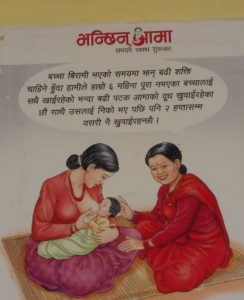 Yesterday we come down from Kathmandu, the capital of Nepal, to our THET training area in Nawalparasi. Today we are starting our sixth and last training session on the Mental health training for community-based maternity care providers. Interesting we are starting training on a Sunday as Nepal is largely a Hindu country and most workers have only a one-day weekend (which is the Saturday). This BU-led project is a collaboration between the Centre for Midwifery, Maternal & Perinatal Health (CMMPH), Tribhuvan University (Nepal’s oldest university) and Liverpool John Moores University (LJMU). The project receives funding from DFID, and is managed through THET and supported locally in Nepal by a charity Green Tara Nepal.
Yesterday we come down from Kathmandu, the capital of Nepal, to our THET training area in Nawalparasi. Today we are starting our sixth and last training session on the Mental health training for community-based maternity care providers. Interesting we are starting training on a Sunday as Nepal is largely a Hindu country and most workers have only a one-day weekend (which is the Saturday). This BU-led project is a collaboration between the Centre for Midwifery, Maternal & Perinatal Health (CMMPH), Tribhuvan University (Nepal’s oldest university) and Liverpool John Moores University (LJMU). The project receives funding from DFID, and is managed through THET and supported locally in Nepal by a charity Green Tara Nepal.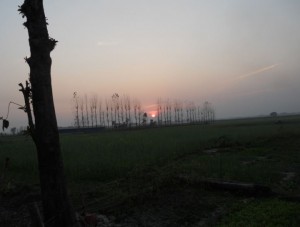 The landscape in the photo gives an idea of how rural this part of Nepal is. Nawalparasi is situated in the south of Nepal the India border. It is also largely very flat, not like the Nepal most people envisage namely that of the Himalayans and of Mount Everest. The flatness makes a Dutchman feel at home though.
The landscape in the photo gives an idea of how rural this part of Nepal is. Nawalparasi is situated in the south of Nepal the India border. It is also largely very flat, not like the Nepal most people envisage namely that of the Himalayans and of Mount Everest. The flatness makes a Dutchman feel at home though.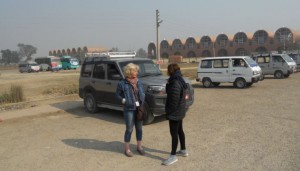

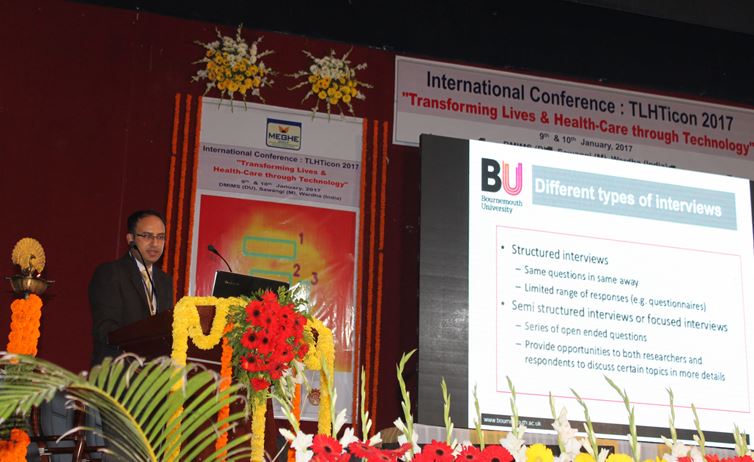
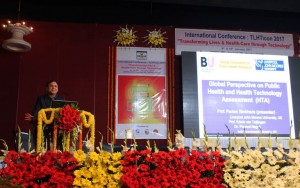
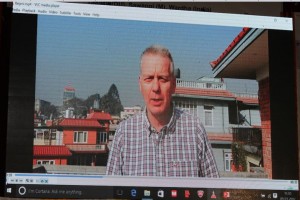


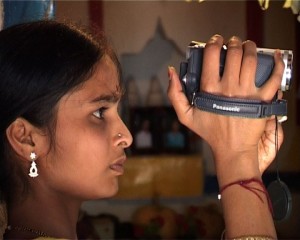


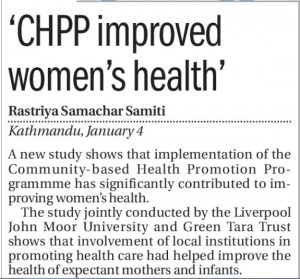
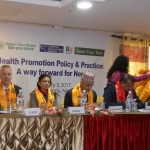
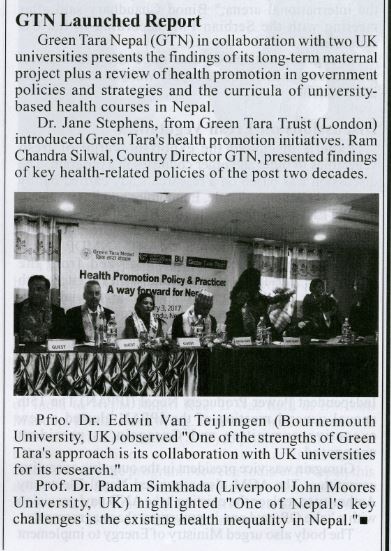
 The Centre for Qualitative Research presents Lee-Ann Fenge and Carole Pound “In Conversation…” about Participatory Action Research and Co-operative Inquiry this Wednesday at 1 pm in RLH 201.
The Centre for Qualitative Research presents Lee-Ann Fenge and Carole Pound “In Conversation…” about Participatory Action Research and Co-operative Inquiry this Wednesday at 1 pm in RLH 201.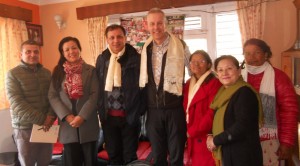

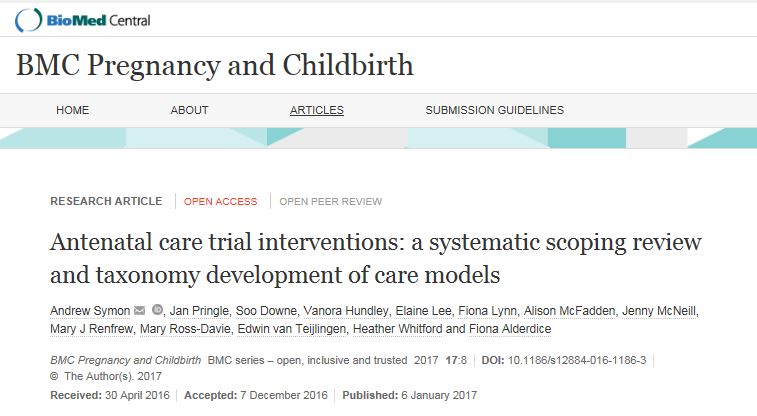
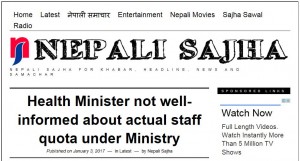
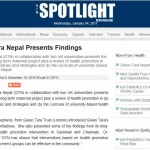
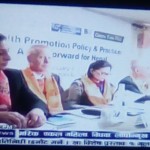
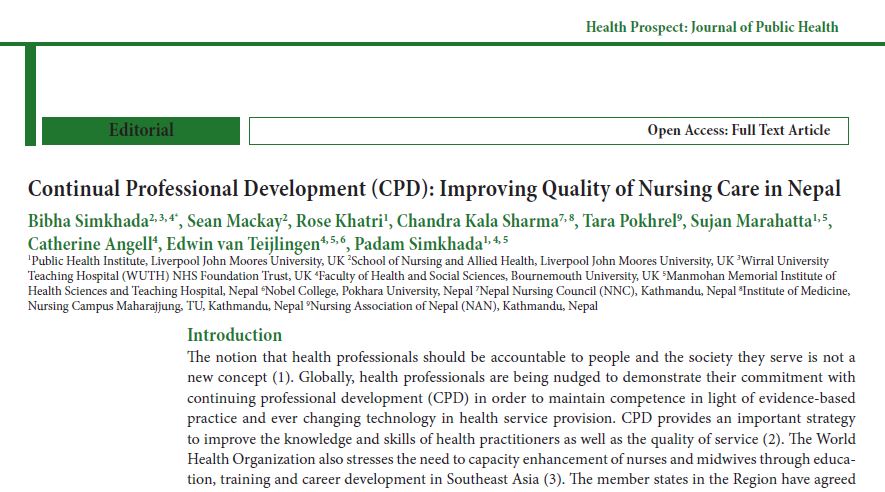

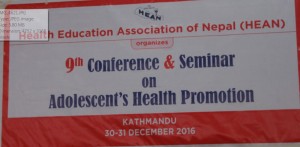 Yesterday Prof. Edwin van Teijlingen from BU’s Centre for Midwifery, Maternal & Perinatal Health (CMMPH) spoke at the 9th Conference and Seminar on Adolescent’s Health Promotion in Kathmandu. This event was organised by the Health Education Association of Nepal (HEAN). The first keynote speech ‘Adolescent’s Health Promotion: Global Perspectives‘ was presented by BU Visiting Faculty Prof. Padam Simkhada (based at Liverpool John Moores University) on behalf of his BU co-authors Dr. Pramod Regmi and Prof. Edwin van Teijlingen. The second keynote speech ‘Global Health Promotion Approach‘ was presented jointly by Prof. van Teijlingen and Green Tara Nepal country director Mr. Ram Chandra Silwal on behalf of their collaborators Prof. Simkhada and Green Tara Trust, UK (Dr. Jane Stephens and Ms. Colette Fanning).
Yesterday Prof. Edwin van Teijlingen from BU’s Centre for Midwifery, Maternal & Perinatal Health (CMMPH) spoke at the 9th Conference and Seminar on Adolescent’s Health Promotion in Kathmandu. This event was organised by the Health Education Association of Nepal (HEAN). The first keynote speech ‘Adolescent’s Health Promotion: Global Perspectives‘ was presented by BU Visiting Faculty Prof. Padam Simkhada (based at Liverpool John Moores University) on behalf of his BU co-authors Dr. Pramod Regmi and Prof. Edwin van Teijlingen. The second keynote speech ‘Global Health Promotion Approach‘ was presented jointly by Prof. van Teijlingen and Green Tara Nepal country director Mr. Ram Chandra Silwal on behalf of their collaborators Prof. Simkhada and Green Tara Trust, UK (Dr. Jane Stephens and Ms. Colette Fanning).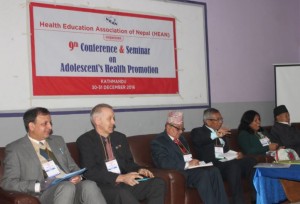

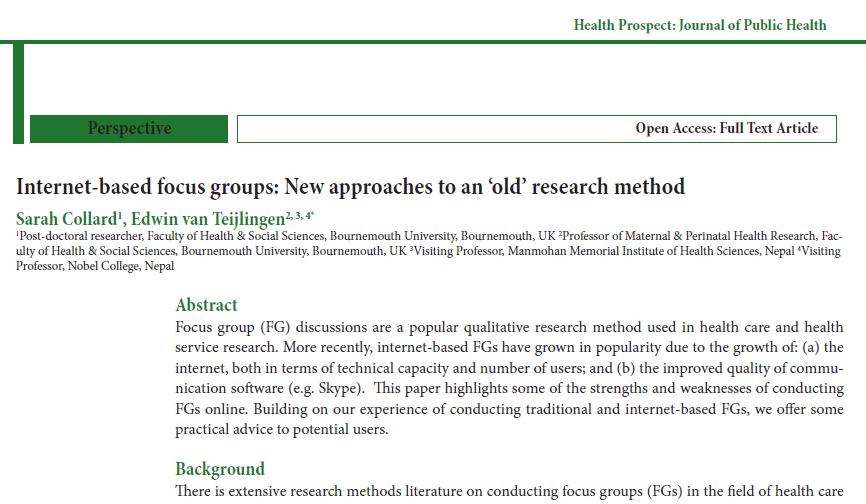

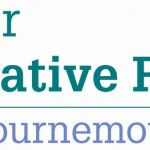











 Upcoming opportunities for PGRs – collaborate externally
Upcoming opportunities for PGRs – collaborate externally BU involved in new MRF dissemination grant
BU involved in new MRF dissemination grant New COVID-19 publication
New COVID-19 publication MSCA Postdoctoral Fellowships 2024
MSCA Postdoctoral Fellowships 2024 Horizon Europe News – December 2023
Horizon Europe News – December 2023